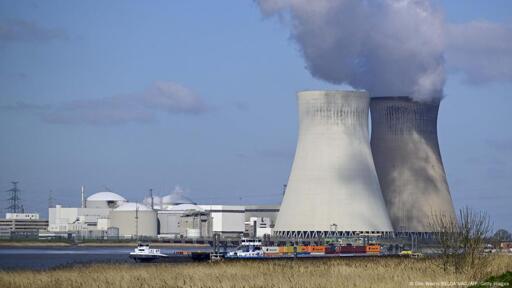Belgium has dropped nuclear phaseout plans adopted over two decades ago. Previously, it had delayed the phaseout for 10 years over the energy uncertainty triggered by Russia’s invasion of Ukraine.
Belgium’s parliament on Thursday voted to drop the country’s planned nuclear phaseout.
In 2003, Belgium passed a law for the gradual phaseout of nuclear energy. The law stipulated that nuclear power plants were to be closed by 2025 at the latest, while prohibiting the construction of new reactors.
In 2022, Belgium delayed the phaseout by 10 years, with plans to run one reactor in each of its two plants as a backup due to energy uncertainty triggered by Russia’s war in Ukraine.



Still (way) more expensive than just building cheap renewables.
Air and wind are inexpensive insofar as they have a low LCOE, but are intermittent, so require being coupled with energy storage, and that is not inexpensive.
If you’re talking hydropower or geothermal, then they don’t have the intermittency issue (well, hydro does, but to a far lesser degree), but both are subject to the geography of the area. They aren’t available to everyone.
EDIT: And in the case of hydropower, there are also some environmentalists unhappy about the impact on river systems, since dams inevitably have at least some impact on river ecosystems, even if you build those fish channels.
EDIT2: “Fishway” or “fish ladder”.
EDIT3: In fairness, for some uses, intermittency isn’t such a big issue. That is, you may have an industrial process that you can only run when energy is available. So, for example, the Netherlands used to do this (sans electricity) with their windpumps in the process of poldering. That’s not free — if you want your pumps to run only a third of the time on average, then you need triple the pumping capacity — but for some things like that, where the process is basically the pumping side of pumped hydrostorage, it might be cheaper than providing constant operation with a non-intermittent power source.
But for an awful lot of uses, people just want electricity to be available when they flip the switch.
https://www.bbc.co.uk/future/article/20241113-will-chinas-ultra-high-voltage-grid-pay-off-for-renewable-power
https://en.wikipedia.org/wiki/Ultra-high-voltage_electricity_transmission_in_China
Ideally we’d be doing/improving on something like this where modern nuclear plants can make up for gaps in renewables.
First, AIR and wind?
Second, yes they are intermittent but that’s not an argument in favour of nuclear. Pairing intermittent sources and sources that need to run at full power 24/7 to be economic isn’t a good match.
Solar and wind, sorry.
Sure it is. It’s just not an argument in favor of using nuclear as a peaking source to fill in the gaps for solar and wind intermittency.